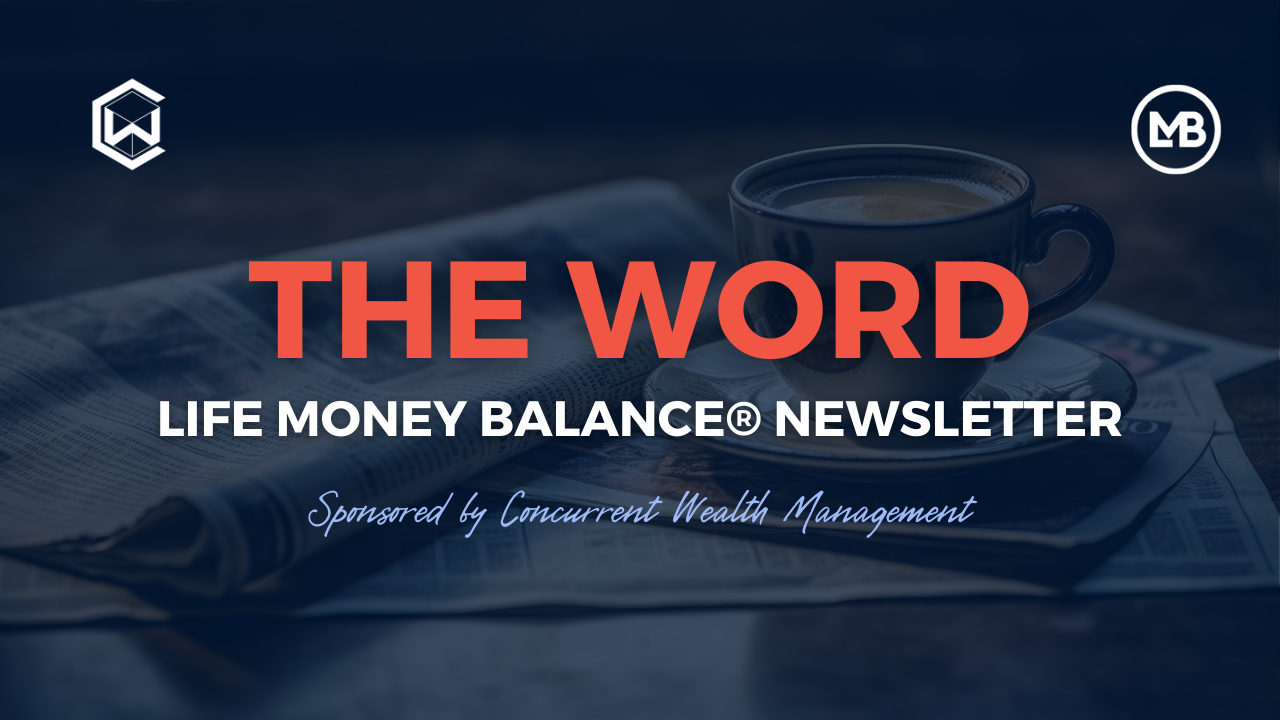By now, you likely understand that you need to be investing to grow your wealth. Your money needs to be working for you. However, do you know your investment options outside traditional stocks and bonds?
In our increasingly complex financial arena, affluent investors are always seeking ways to diversify their portfolios and protect their hard-earned wealth. Traditional assets like stocks, bonds, and cash have been the traditional basis of many investment strategies, but with market volatility, inflation concerns, and low interest rates, these conventional options may no longer be enough to cut it.
That’s where alternative investments come in — assets that offer diversification, potential for higher returns, and access to unique opportunities not available in the public markets.
Alternative investments can potentially serve as a vital component of a well-rounded portfolio, especially for those who have accumulated significant wealth and are looking to manage risk while seeking growth.
In this article, we will examine the importance of alternative investments in a healthy portfolio and discuss nine different investment alternatives that can help you achieve your unique financial goals. Whether you’re looking to hedge against inflation, invest in high-growth opportunities, or simply diversify your portfolio, alternative investments may be your key to a more secure financial future.
Why are alternative investments important to be aware of?
Alternative investments may be completely outside of the traditional financial advice you’ve heard of. You may be thinking, “I’ve gotten this far without looking into investment alternatives — why start now?”
Well, for starters, alternative investments help you to diversify your portfolio. Diversification helps you reduce risk by spreading your investments across multiple asset classes instead of concentrating them on just one.
Traditional investments like stocks and bonds are often correlated, meaning they tend to move in the same direction during market swings. By investing in alternatives that are outside of the stock market, you can help smooth out returns and reduce the overall risk in your portfolio when the stock market experiences dips.
Let’s look at the 2008 financial crisis, for example. Many traditional asset classes suffered significant losses; however, certain alternative investments — like commodities and hedge funds — performed relatively well, helping to offset losses in other parts of the portfolio.
Alternative investments also have the potential for higher returns. Private equity, venture capital, and real estate, for example, can outperform traditional investments, especially when invested in high-growth companies or appreciating properties. Real estate, whether directly owned or through Real Estate Investment Trusts (REITs), offers capital appreciation and rental income, making it an attractive option for growth.
Additionally, alternatives can be effective hedges against inflation. Assets like commodities and real estate tend to appreciate as the cost of living rises, helping to preserve your portfolio’s purchasing power.
Finally, alternative investments provide access to unique opportunities unavailable in public markets. Venture capital, distressed assets, and specialized real estate projects offer substantial growth potential, though they come with higher risks. Investing in tangible assets like real estate, art, or collectibles not only adds financial value but also personal satisfaction, providing a sense of security and fulfillment to your overall investment strategy.
Different Alternative Investment Types
Now that we understand why it’s so important to invest in alternative investments, it’s time to dive into your alternative investment options that can work to contribute to your overall investing goals.
Real Estate
Real estate is one of the most popular alternative investments, offering various ways to generate income and build wealth. Real estate includes residential properties, commercial buildings, and even Real Estate Investment Trusts (REITs).
Residential real estate provides rental income and potential appreciation over time, making it an attractive option for long-term investors. Commercial real estate, on the other hand, typically offers higher income through leasing to businesses, but it requires more capital and comes with higher risk.
REITs allow you to invest in real estate without owning property directly. They are publicly traded companies that manage a portfolio of real estate assets and distribute a significant portion of their income as dividends.
Another option for investing in real estate is real estate crowdfunding, which enables investors to pool their money to fund specific projects. This provides access to deals that might otherwise be out of reach.
It’s important to note that real estate investing tends to be illiquid. They require a long-term commitment, making them trickier for investors with shorter investment horizons. Market conditions also play a significant role in your property values, which can make real estate investing riskier than traditional investment options.
Private Equity
Private equity investing is when you invest in private companies or acquire public companies to turn them private. These investments often include acquiring a significant ownership stake and actively participating in the company’s management to enhance its value.
Private equity offers access to high-growth opportunities, particularly in companies not yet publicly traded, which can lead to substantial returns when the company is sold or goes public. They can be a great investment opportunity for certain investors, depending on your preferences.
However, private equity investments are high-risk and come with the potential for significant losses if the company underperforms. They also require a long-term investment horizon, as it can take years for a company to grow and realize its value. These investments are also typically illiquid, meaning it can be challenging for you to exit your investment before a major liquidity event like a sale or IPO.
Hedge Funds
Here’s one you may have heard of before, but may or may not quite understand how they work — hedge funds.
Hedge funds are pooled investment funds that use various strategies to generate returns, including short selling, leverage, and derivatives. Many look at hedge fund investing as “placing a bet on the stock market”. These funds aim to provide high returns, particularly in market conditions where traditional investments might struggle. Hedge funds offer diversification by using more sophisticated strategies that are not typically available in mutual funds or ETFs.
Hedge funds aren’t for everyone, however. They often come with high fees, including management and performance fees, which can eat at your overall returns. They also tend to lack the transparency that many investors crave, as their strategies are proprietary and not disclosed to investors.
Additionally, hedge funds can be high-risk, especially those that use leverage or complex derivatives, making them suitable only for investors with a high-risk tolerance.
Commodities
Another attractive alternative investment option is commodities. Commodities are physical goods like precious metals, energy resources, and agricultural products. They are a great option because they can provide an inflation hedge and portfolio diversification.
Investing in commodities like gold, silver, oil, and natural gas offers you, as an investor, exposure to essential elements of the global economy. Precious metals like gold and silver have historically been popular for storing value, particularly during periods of economic instability.
Commodities, however, can be volatile, with prices affected by supply and demand, geopolitical events, and weather conditions. Investing in them may require you to gain specialized knowledge due to their complexity and unpredictability. Commodities also don’t generate income on their own, so they may be less appealing if you’re a passive, income-focused investor who doesn’t want to actively trade to realize returns.
Collectibles
For our investors looking to balance their financial portfolios with their personal values and hobbies, collectibles may be your next investment option to consider.
Collectibles are tangible assets like art, wine, classic cars, and rare coins, which can appreciate over time. Collectible investors may be able to dually benefit from financial gain and personal enjoyment, as these items can often become more valuable as they become rarer or more desirable.
Investing in art can be financially rewarding, especially as the art market continues to grow, with pieces by renowned artists fetching significant sums at auction, but some may also find the active collection of these pieces to be enjoyable. Choosing different types of collectibles can turn into a hobby — as long as you don’t let it steer you away from your well-structured financial plan.
However, collectibles aren’t fail-proof investment alternatives. The value of collectibles can be highly subjective and influenced by trends in taste and demand. They can also be illiquid, as finding a buyer willing to pay the desired price can take time. Investing in collectibles also often requires specialized knowledge to identify valuable items and assess their potential for appreciation.
Private Debt or Peer-to-Peer Lending
Private lending is another investment alternative option that can help you reach your financial goals outside of the traditional investment options. Private debt involves lending to private companies or individuals — outside the traditional banking system. This can offer investors higher yields than public bonds, as this is typically a less secure investment. Many businesses have online platforms for peer-to-peer lending that allow you to pool your cash with other investors to lend money.
Private debt can provide steady income, making it an attractive option for income-focused investors, particularly in a low-interest-rate environment; however, private debt comes with risks. There is a potential for default if the borrower is unable to repay the loan. Private debt investments are also less liquid than public bonds, as they are typically held until maturity.
As with other alternative investments, private debt requires a thorough understanding of the borrower’s creditworthiness and the structure of the loan, so you don’t want to jump in with a blind eye.
Infrastructure
Many may not realize it, but you can invest in infrastructure. Infrastructure investments involve funding essential public services and facilities, such as transportation, utilities, and communication systems.
These investments offer stable, long-term returns, as infrastructure projects often have consistent cash flows and are less sensitive to economic cycles. This can look like investing in toll roads, airports, or renewable energy projects, which can provide steady income and the potential for capital appreciation.
Infrastructure investments, like all other investment alternatives, may not be for everyone, however. They can require significant capital and are often illiquid, as they are typically held for extended periods. These projects can also be subject to political and regulatory risks, which can impact their profitability.
Investors interested in infrastructure should be prepared for a long-term commitment and the potential for regulatory challenges; however, contributing to infrastructure projects can be emotionally and financially fulfilling when part of an overall plan.
Venture Capital
Venture capital investing involves investing in early-stage companies with high growth potential, often in the technology or biotech sectors. These investments offer the potential for substantial returns if the company succeeds, making them an attractive option for investors willing to take on higher risk.
Venture capital investing is typically focused on startups that are innovating or disrupting existing markets, offering investors the chance to participate in the “next big thing”.
However, venture capital can be highly speculative and comes with a significant risk of loss, as many startups fail to achieve their growth objectives. These investments also require a long-term commitment, as it can take years for a company to reach profitability or go public. This means that venture capital investing may not be for you if you’re looking for a return that’s steady and timely. Venture capital investments are also illiquid, which can make it difficult to exit before a liquidity event — like an acquisition or IPO.
Alternative Investment Products
Last up, we have alternative investment products that are packaged by financial institutions to make alternative investments more accessible to investors. These products are financial instruments that combine familiar financial investment structures with alternative investment markets.
These products can be tailored to meet specific investment goals, such as capital protection, income generation, or exposure to particular market segments. Alternative investment products are often attractive to investors looking for a familiar investment solution that aligns with their risk tolerance and financial objectives.
These products, however, can be complex and difficult to understand, making them best for more experienced investors. They also carry counterparty risk, as the performance of the product depends on the issuer’s financial stability.
These alternative investment products can also be illiquid, with limited secondary markets. This can make it challenging to sell them before maturity, so they aren’t necessarily the best option for investors just looking to dip their toes in alternative investments.
Bottom Line
Alternative investments can offer valuable opportunities for you to diversify your portfolio, potentially enhance returns, and hedge against inflation. By including assets like real estate, private equity, commodities, and more, you can gain exposure to unique markets and strategies that aren’t available through traditional investments.
However, these options come with their own set of complexities and risks, requiring significant knowledge and thorough research to navigate effectively. It’s crucial to remember that alternative investments should complement, not replace, your core investment strategy. They are most effective when integrated thoughtfully into a well-rounded portfolio that aligns with your financial goals and risk tolerance.
Given their intricacies, discussing alternative investments with a trusted financial planner is your best bet for investing with confidence. Financial planners can provide personalized advice, help you evaluate how these investments fit into your overall strategy, and ensure that your portfolio remains balanced and resilient.
Want to discuss alternative investment options with high returns for your portfolio? Let’s set up a chat!
Here at Concurrent Financial Planning, our team works with you to help you find the right balance for your unique needs and goals.





